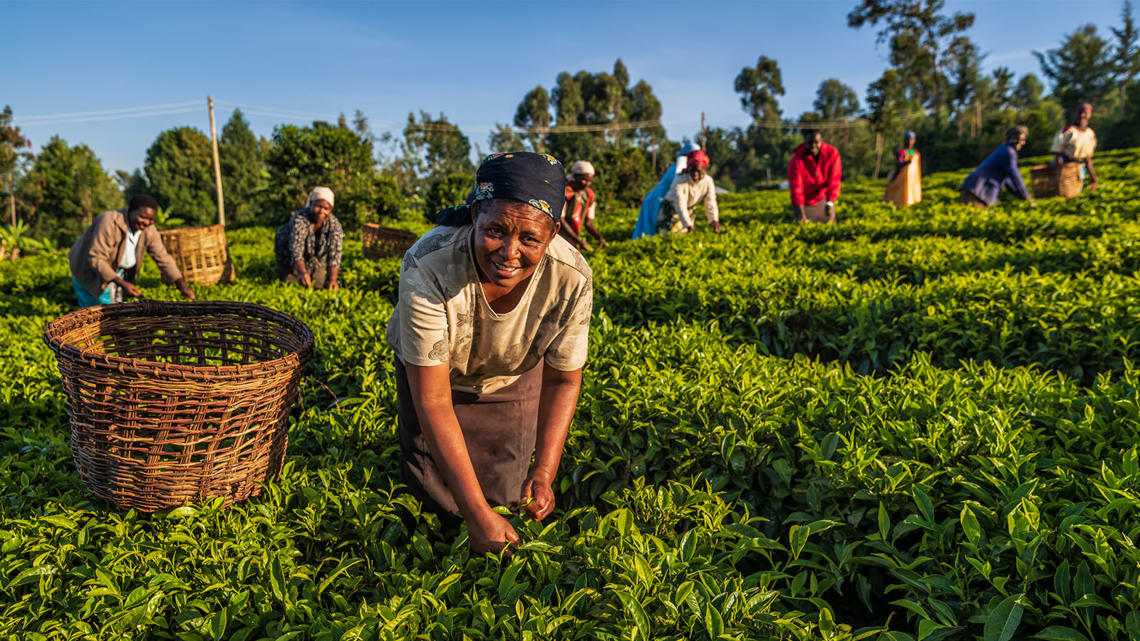Inua Mkulima
INUA MKULIMA CAMPAIGN AND ENVIRONMENTAL ISSUES
The ongoing INUA MKULIMA campaign has mainstreamed Population, Health and Environmental issues in its activities at all levels. Health of the population especially the smallholder farmers has a direct relationship with the environment in which they operate.
Climate change has evolved from being simply an environmental problem to a major development challenge. Soil erosion and land fertility exhaustion are some of the major challenges associated with smallholder farming in Kenya.
Use of climate smart agriculture (CSA) should be adopted by smallholder farmers to improve productivity and profitability in their farming activities. This is an integrated approach to managing landscapes- cropland, livestock and fisheries-that address the interlinked challenges of food security and accelerating climate change. Climate- smart crop production practices and technologies includes:
- Use of quality seeds and planting materials of well adopted crops and varieties
- Biodiversity management
- Integrated pest management
- Improved water use and management
- Sustainable soil and water management for increased crop productivity
- Sustainable mechanization etc.


INUA MKULIMA Campaign is in Support of the National Population and Development Agenda
The theme of the 54th Session of the United Nations Commission on Population and Development “Population, Food Security, Nutrition and Sustainable Development fitted very well with INUA MKULIMA Campaign agenda for development by ensuring 100 per cent food and nutrition security for Kenyan population by 2022.
Kenya’s Population has been increasing over the years from 10.9 million 1969 to 47.6 million in 2019. This increasing population has increased demand for food production and has exerted pressure on the environment which coupled with frequent droughts and the adverse effects of climate change, including more frequent and extreme weather events has hampered the country’s efforts to meet the set targets for food security, nutrition and sustainable development.
It is estimated that the country experiences a 20- 30% deficit in staple foods every year as the overall national food production has not increased in tandem with population growth. This state of affairs is likely to continue especially with the current increase in the annual population growth rate by 2.3 per cent per year. Like most other countries in Sub-Saharan Africa a significant proportion of the Kenyan population cannot meet their daily food requirements.
Nutritional trends in Kenya shows that, nationally, 26% of children less than five years are stunted, 4% are wasted and 11% are underweight, depicting chronic undernourishment, which remains a serious and a national development concern.
Due to malnutrition, these children less likely to fight off illness, thrive and often ends up with poor cognitive development and remains physically stunted. Such children are less likely to achieve highly in school due to poor attention, reasoning, learning and memory.
Kenya is increasingly faced with the emergence of diet-related non-communicable diseases such as diabetes, heart diseases, hypertension, obesity and gout. These diseases are mainly caused by a change in lifestyle characterized by excessive intake of highly refined and high-fat foods, sugar and salt, coupled with limited physical activity, a characteristic of urban settings. It is estimated that 28% of Kenyans aged 18-69 years are either overweight or obese. With the percentage being significantly higher in women (38.5%) than men (17.5%).
THUMP recognizes the importance of food security and nutrition as a key to achieving human development goals. The National Food and Nutrition Security Policy Sessional Paper Number 1 of 2012, recognizes food security as a basic human right. The overall goal of the policy is to ensure that all Kenyans throughout their lifecycle enjoy at all times safe food in sufficient quantity and quality to satisfy their nutritional needs for optimal health. The Policy provides for an overarching framework covering all the four dimensions of food security— availability, accessibility, utilization and stability, as recognized by the World Food Summit. It also addresses the synergy linking food security and nutrition with poverty eradication.
In addition, the Big Four Agenda for development seeks to ensure a 100 per cent food and nutrition security through a 34 per cent increase in the average daily income of famers, a 27 per cent reduction in malnutrition among children under the age of five years, and a 50 per cent reduction in the population of food-insecure Kenyans.
The effects of climate change pose a biggest challenge to sustainable food production, consumption expectations and patterns globally as well as in Kenya. In this regard, measures should be instituted to handle the challenges posed by adverse effects of climate change, including more frequent and extreme weather events. Authorities should enact and operationalize a number of legal frameworks including the Forest Conservation and Management Act 2016 and Climate Change Act 2016.More resources should be reallocated towards mitigation and adaptation measures on climate change in various parts of the country especially to rural agricultural areas in support of smallholder farmers.
The country has over the years been experiencing challenges posed by the adverse effects of climate change, including more frequent and extreme weather events that has hampered further improvement in food security and eradication of hunger in order to help to prevent malnutrition and promote economically viable and environmentally sustainable, enhancing resilience to climate change and natural disasters. There should be countrywide deliberate in promoting, enhancing and supporting sustainable agriculture, including crops, forestry, fisheries and aquaculture through the implementation of INUA MKULIMA strategy on food and nutrition security in support to smallholder farmer.
There is need to come up with new strategies which can facilitate the effective and efficient food production systems in order to ensure food security, nutrition and sustainable development and hence accelerate the attainment of the Sustainable Development Goals by 2030.
